The Pros And Cons Of Buying A Private Property As Your First Home: Is It A Smart Move?
February 19, 2022
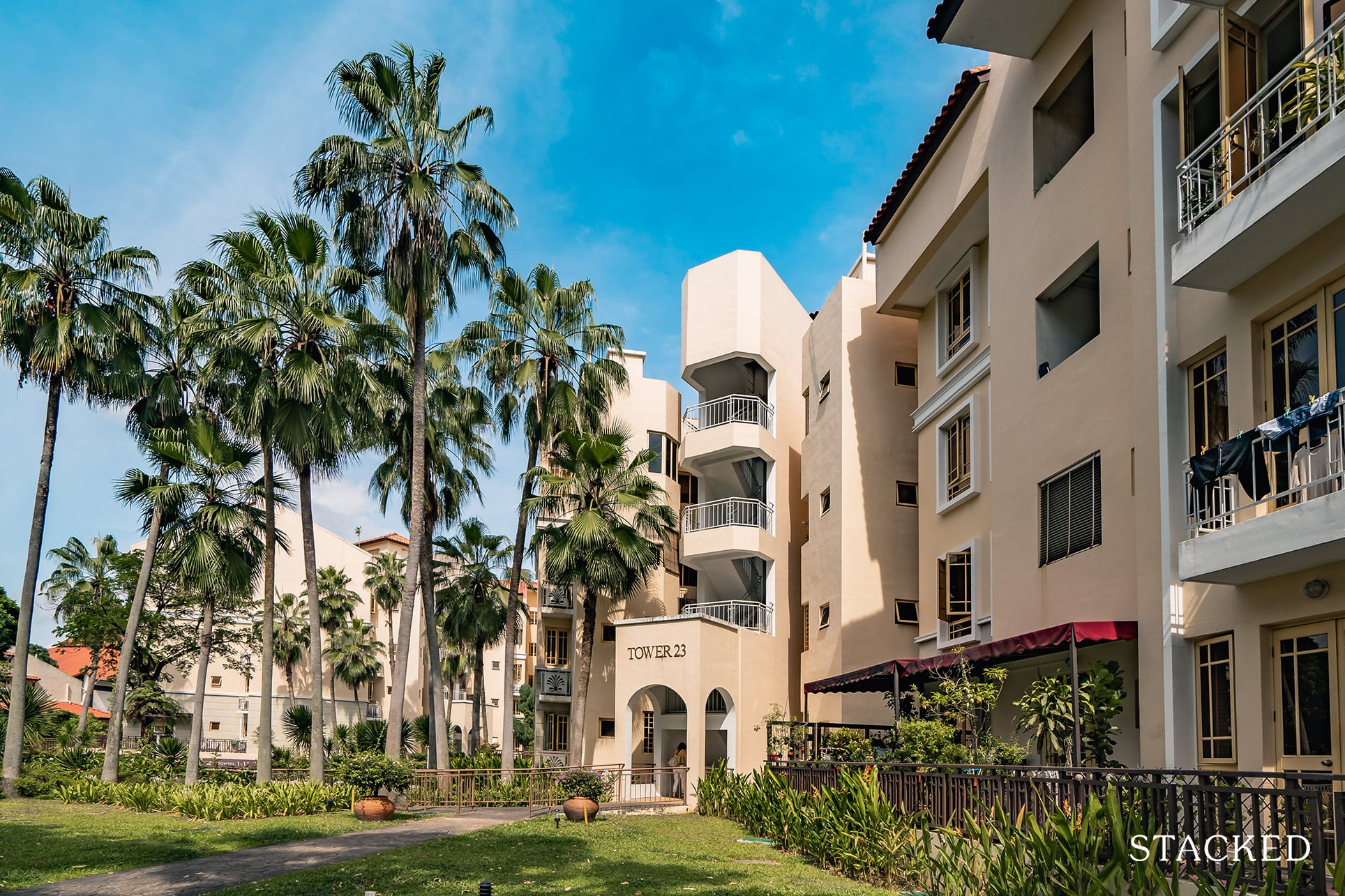
With home prices high across the board, there will be some buyers who are now wondering if 2022 is the right time to commit to a private property. A resale flat can seem to offer more space at a lower cost, but with eligibility restrictions that could bite in the future. It’s important to take a long-term view at this point, and also to look at factors beyond just the price point. If you are considering making a private property your first home purchase, here are some pros and cons that you should take note of:
Table Of Contents
- Pros of buying a private property first
- 1. Fewer eligibility issues
- 2. Fewer restrictions on resale
- 3. Immediate rental is on the cards
- 4. Might be required for certain pet owners
- 5. Cash-out refinancing is possible later
- 6. TDSR will improve your affordability
- Cons of starting with a private property
- 1. Much higher cash outlay
- 2. Banks are far less forgiving to young couples
- 3. Maintenance fees are much higher
- 4. En-bloc risk
- 5. Difficult to get a BTO flat when downgrading
So many readers write in because they're unsure what to do next, and don't know who to trust.
If this sounds familiar, we offer structured 1-to-1 consultations where we walk through your finances, goals, and market options objectively.
No obligation. Just clarity.
Learn more here.
The upsides of buying a private property first
We’ll skip the most obvious upside, which is that many (but not all) private condos have common facilities like pools, gyms, clubhouses, etc. Instead, you’ll want to consider the following:
- Fewer eligibility issues
- Fewer restrictions on resale
- Immediate rental is on the cards
- Might be required for certain pet owners
- Cash-out refinancing is possible later
1. Fewer eligibility issues
HDB flats have a slew of eligibility issues. For example, couples who are both Permanent Residents (PRs) must both have had PR status for at least three years, you can’t buy a flat as a single until you’re 35, there’s an ethnic quota involved… the list goes on.
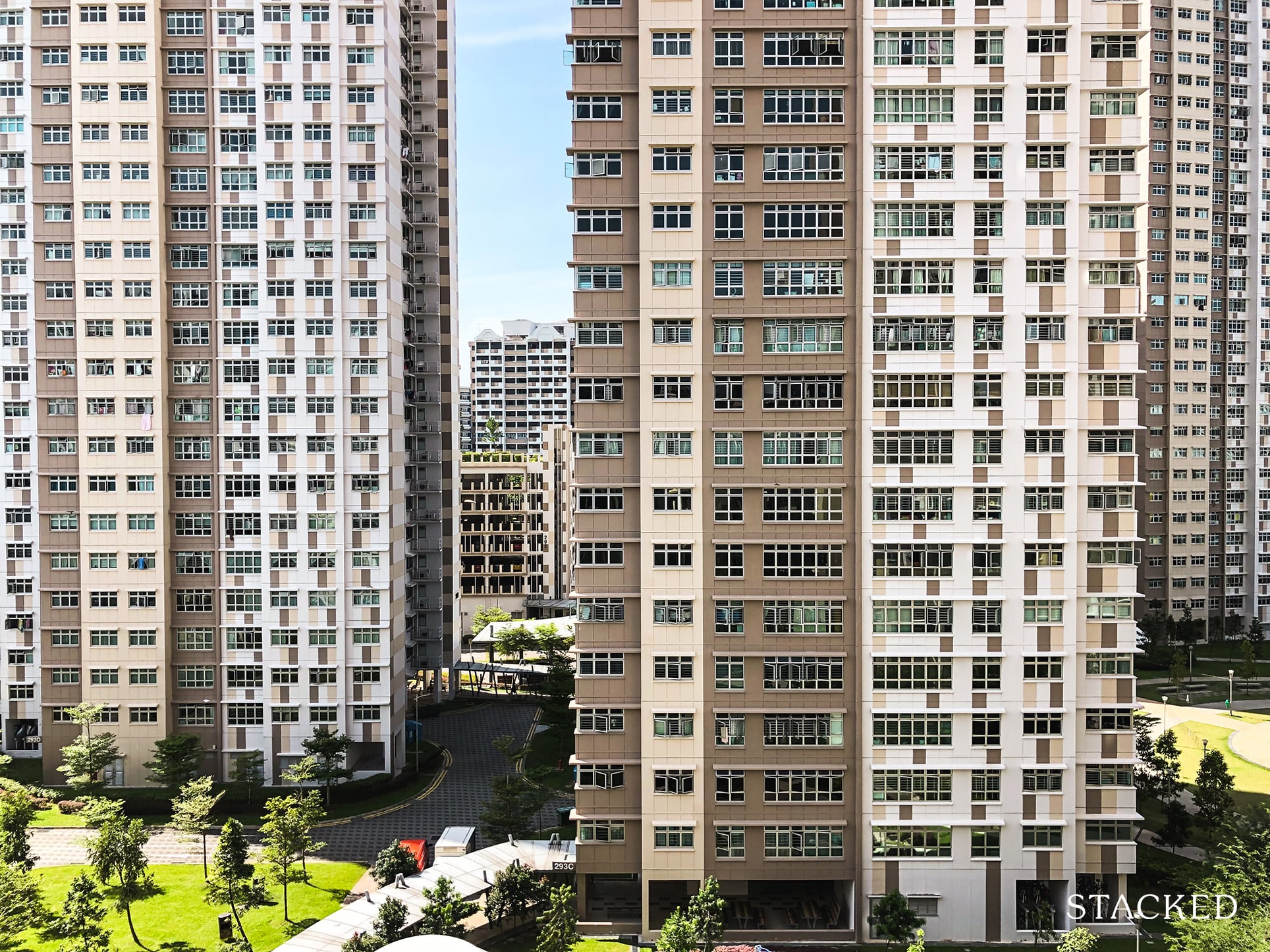
With private properties, there are fewer eligibility restrictions. Some do exist, such as foreigners not being allowed to buy landed homes outside of Sentosa Cove; but other than that, nothing really stops you.
For certain first-time homebuyers, such as lifelong singles, couples who can’t be married, or couples where one is a foreigner*, it might make sense to go straight for a private home, budget permitting.
*If you buy an HDB flat when one spouse is a foreigner, only the Singapore citizen can be the actual owner; the spouse can only be an essential occupier. This means the Singapore Citizen must single-handedly qualify for, and take on, the entire loan.
2. Fewer restrictions on resale
You can sell a private property whenever you like, although bear in mind the Sellers Stamp Duty (SSD) applies within the first three years. It’s 12 per cent of sale proceeds on the first year, eight per cent on the second, and four per cent on the third. It’s obviously a big chunk of change should you need to sell early, but it does allow for a greater deal of flexibility.
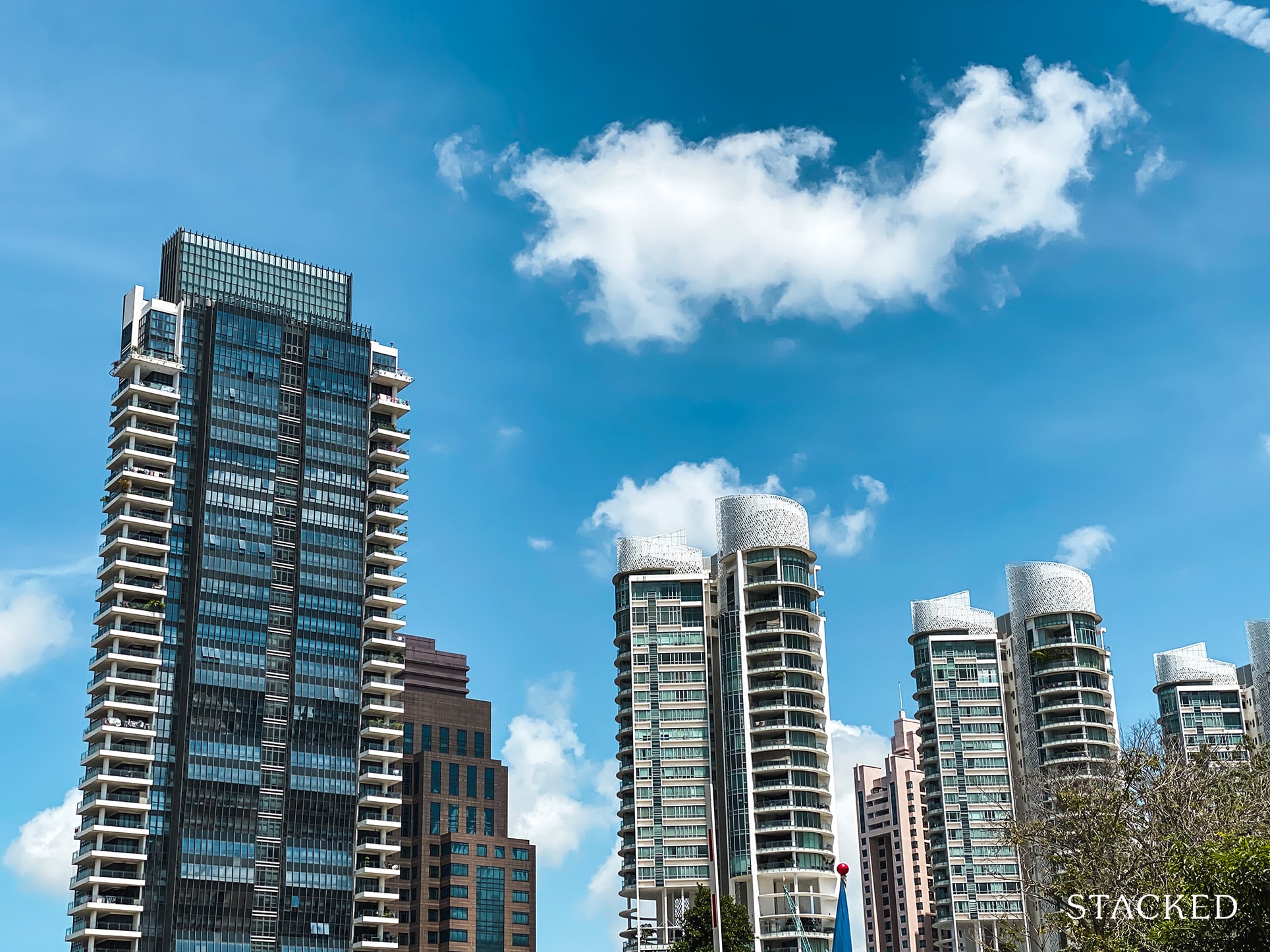
There are private properties that have sold for a profit even as subsales (i.e., before completion).
You won’t have this option with HDB flats, in which you’re required to meet the Minimum Occupancy Period (MOP) of five years before you can sell. Keep in mind the MOP is from the key collection, so for BTO flats, it’s around nine to 10 years before you’re free to sell (that’s four to five years construction time, plus the MOP). There are special circumstances in which you may be allowed to sell before MOP, but these are by HDB’s discretion (mainly divorce cases).
Some home buyers may need flexibility. You may not be sure, for instance, that a given location will still be right for you in three or four years. This prompts some buyers to purchase a small private property in a desirable location right now, while retaining the flexibility to move again shortly.
3. Immediate rental is on the cards
Some first-time homebuyers are okay to live with in-laws for a time, or have other properties in their family that they can live in. These lucky few might consider buying a private property of their own anyway, and renting it out – the rental income can likely cover the interest and maintenance fees, so they have a good appreciating asset.
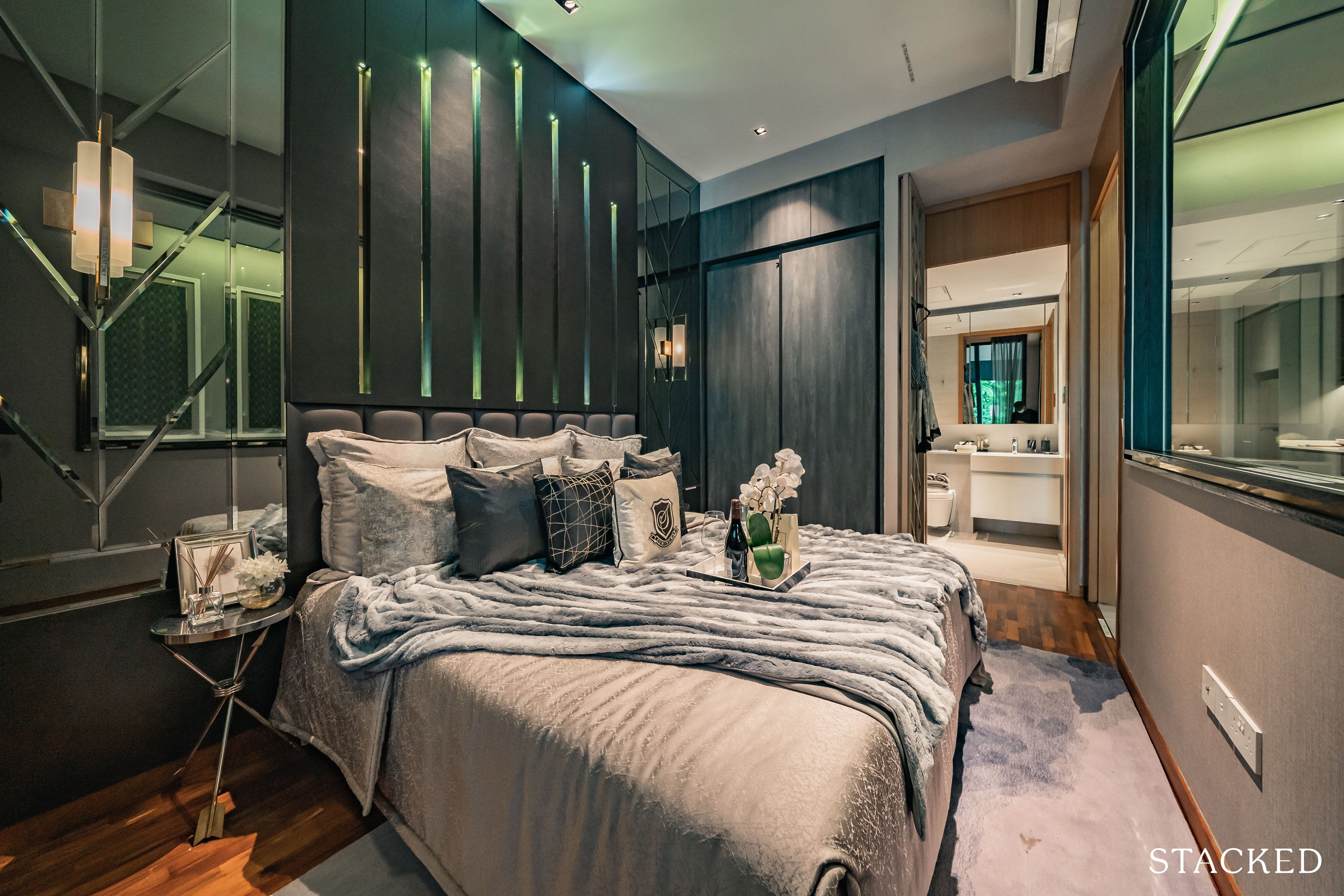
It’s also common for some young couples to buy a private property and rent it out for a few years, before finally moving in themselves. This helps to defray some of the costs of homeownership.
With an HDB flat, you can’t rent out the whole unit until the MOP is up (and PRs can’t rent out the whole flat even then). You can only rent out rooms, and only if the flat is three-room or larger.
4. Might be required for certain pet owners
HDB flats only allow a certain range of dog breeds. It’s also important to note that cats are not technically allowed in HDB flats, and many exotic pets (snakes, iguanas, large spiders, etc,) are not on the approved list.
The general position seems to be that, if no one complains, then nothing happens. But you could end up having to choose between your pet and your home if someone does, and remember you’re under a five-year MOP.
While some condos are just as draconian with pet rules, condos, in general, are more open to various kinds of pets. If you’re already saddled with furry dependents, HDB may just not be a viable choice.
5. Cash-out refinancing is possible later
We have full details on this in a separate article. Just as a matter of flexibility, note that you can use your private property as collateral for a low-interest, high quantum loan later on. This is never an option for HDB flats.
6. TDSR will improve your affordability
For first-time buyers, affordability will always be one of the main constraints. The two major measures that affect how much we can borrow are the Total Debt Servicing Ratio (TDSR) and Mortgage Servicing Ratio (MSR). In short, TDSR applies to private property and MSR for HDB.
As such, because private properties are limited by TDSR and not the MSR, your affordability actually improves.
Here’s an example. Let’s say you have a monthly income of $10,000 and are looking to take a bank loan, meaning a minimum downpayment of 25% is required.
Under the MSR rule of 30%, the max size of a property that you can look at would be about $800k.
However, under the TDSR ruling of 55%, this will improve to an amount of about $1.46 million.
Downsides of starting with a private property
- Much higher cash outlay
- Banks are far less forgiving to young couples
- Maintenance fees are much higher
- En-bloc risk
- Difficult to get a BTO flat when downgrading
1. Much higher cash outlay
You have to use a bank loan for private property, so that means paying the first five per cent in cash. For the typical $1.5 million condo, this is about $75,000; a rather painful amount for a young couple, especially if you’re also saddled with costs like a wedding and a first child.
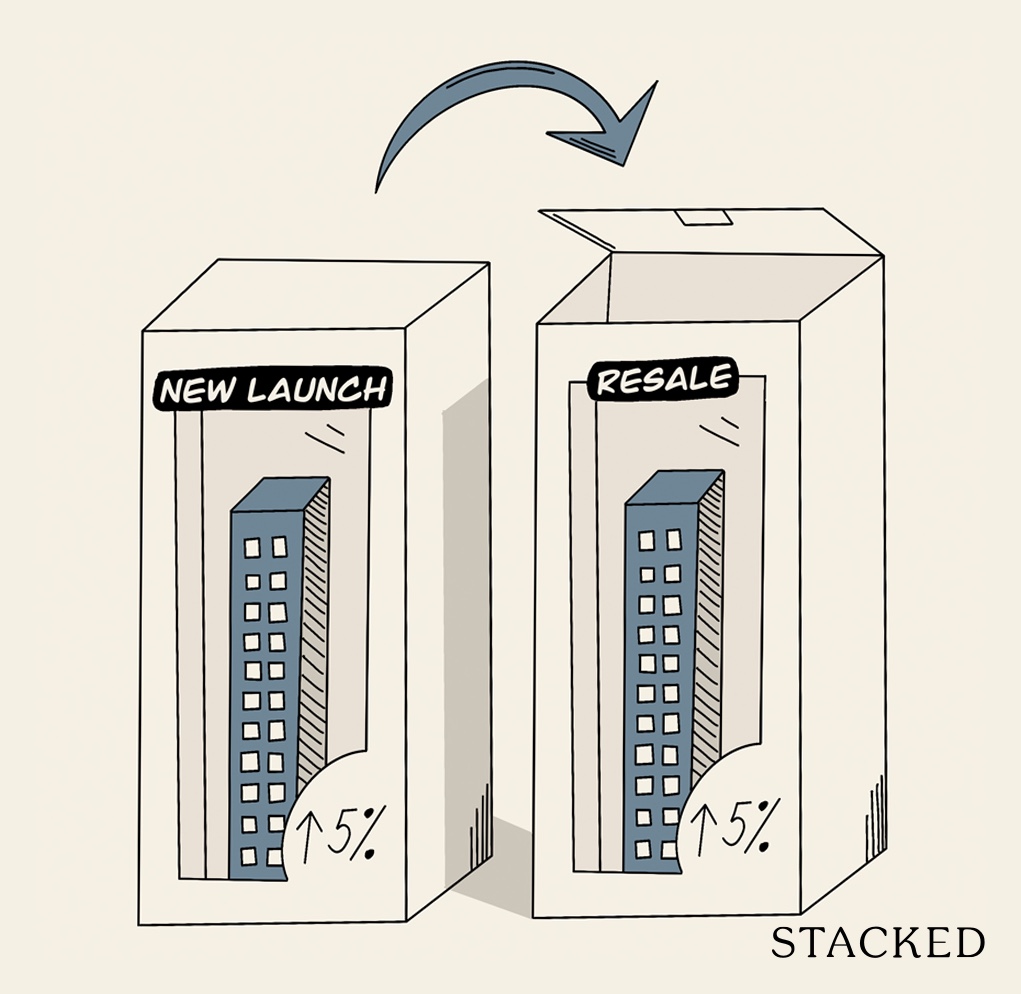
While the percentage borrowed from banks tends to be less, compared to an HDB loan, the sheer quantum still means monthly repayments are also more sizeable. For the most prudent, it’s strongly advised that monthly loan repayments don’t exceed 30 per cent of your combined monthly income (even though debt limitations allow up to 60 per cent).
2. Banks are far less forgiving to young couples
HDB’s main objective is to provide housing, whereas a bank is purely a business. If something goes wrong, and you need to miss mortgage repayments, it’s better if you have an HDB loan.
HDB will repossess your flat only as an absolute last resort, and they’re more likely to be flexible – such as allowing you to make up late payments later, resell before the MOP is up without penalty, and so forth. These are decided on a case-by-case basis.
(Note: this does not mean you can get away without paying your flat loan, just that HDB will try to find alternatives!)
For homebuyers who are in higher-risk situations (e.g., both spouses work purely on commissions), going the HDB route provides more security. The same goes for those who are just starting their own businesses, or who expect to face medical or family issues that could disrupt their finances.
3. Maintenance fees are much higher
The $200 to $300 a month for condo maintenance is pricey, considering that even a five-room flat seldom has conservancy fees beyond $90 a month. All your perks such as swimming pools, tennis courts, and gyms will come at a cost. As with the high cash outlay, this can be a problem for homebuyers who are already saddled with costs like raising their first child, paying off their wedding, etc.
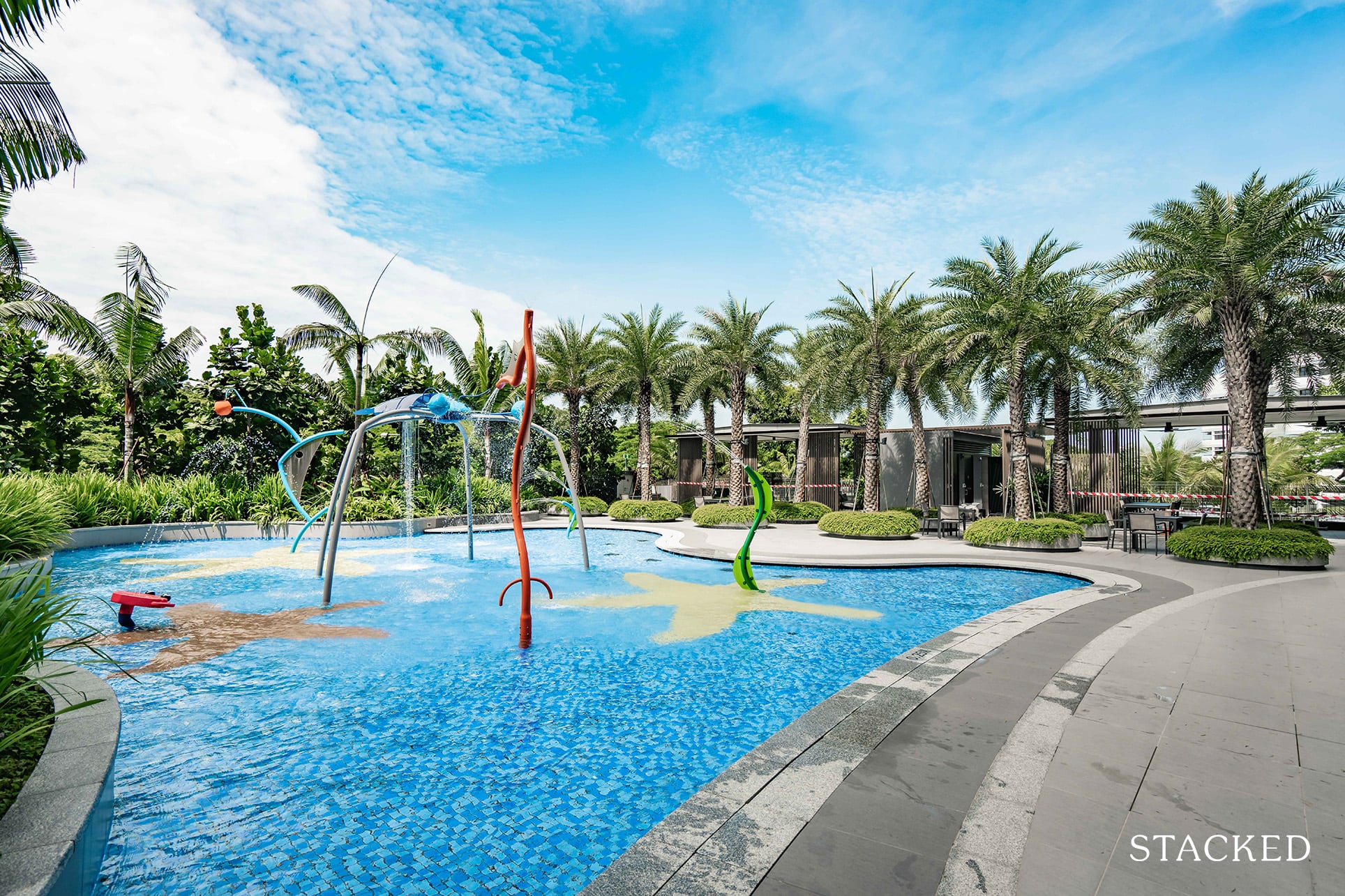
One often-missed aspect of maintenance fees is that, if you pay late, there’s a substantial interest fee charged; often around 15 per cent per annum. And unlike conservancy fees, there isn’t a town council to plead your case.
4. En-bloc risk
Private properties can face en-bloc attempts, especially older developments that are nearing the middle of their lease. Note that the SSD still applies to en-bloc sales, whether you vote for or against it.
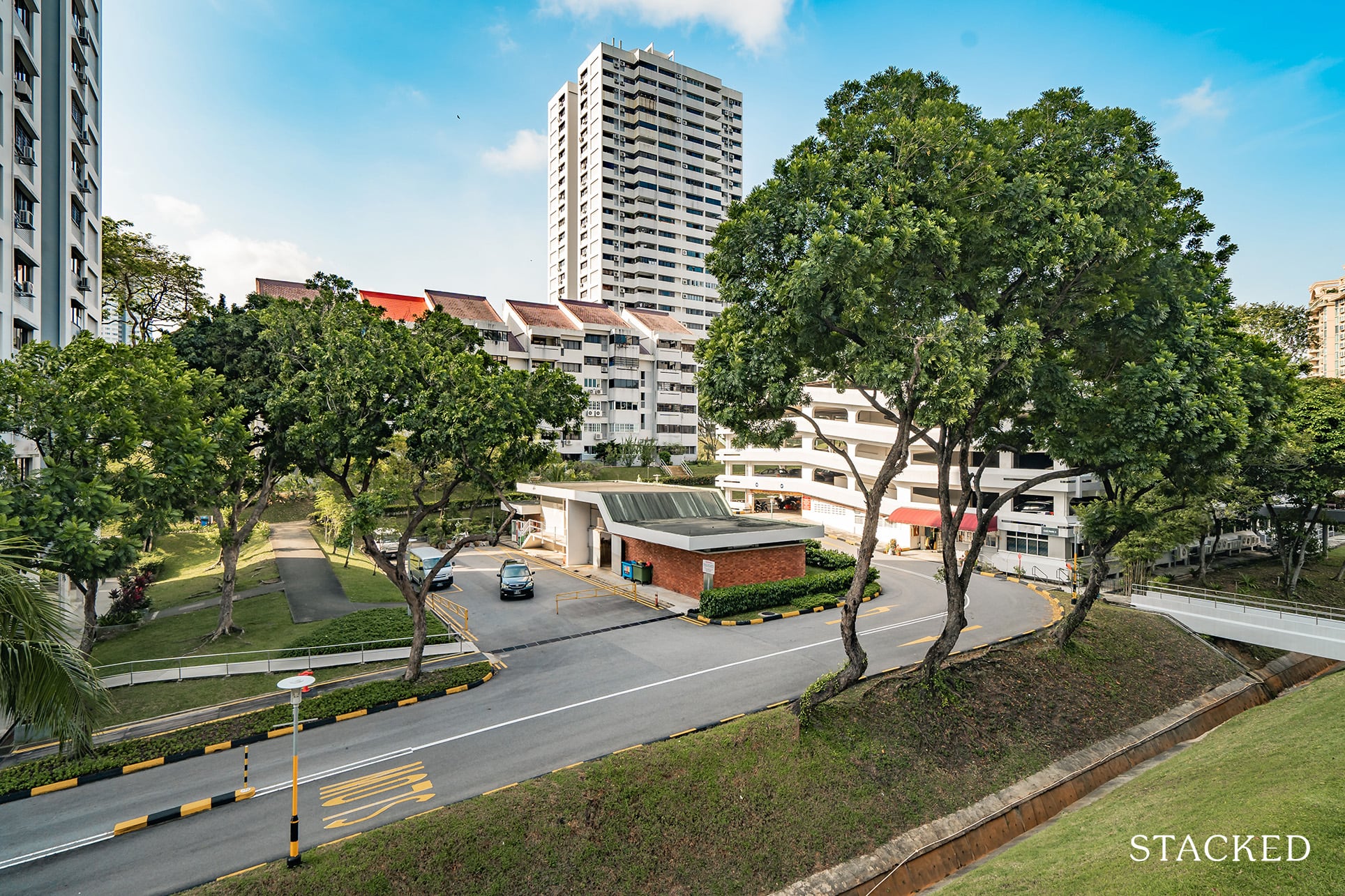
As such, first-time homebuyers should be wary of purchasing very old resale condos; just in case an en-bloc happens in the first few years of ownership. If you’ve just bought and renovated a home, the costs incurred plus Seller Stamp Duty charges will definitely be significant enough that it is very rarely a viable deal for you.
Even for newer condos, you should be aware that en-bloc attempts are common in private properties eventually; and if this is something you dislike, well, HDB flats only ever see en-bloc attempts by the government (and SERS will only happen to around five per cent of HDB estates).
Mind you, some home buyers see en-bloc risk as en-bloc potential and consider this to be an advantage instead.
5. Difficult to get a BTO flat when downgrading
Probably the greatest bugbear, young couples sometimes face problems when switching back to an HDB flat.
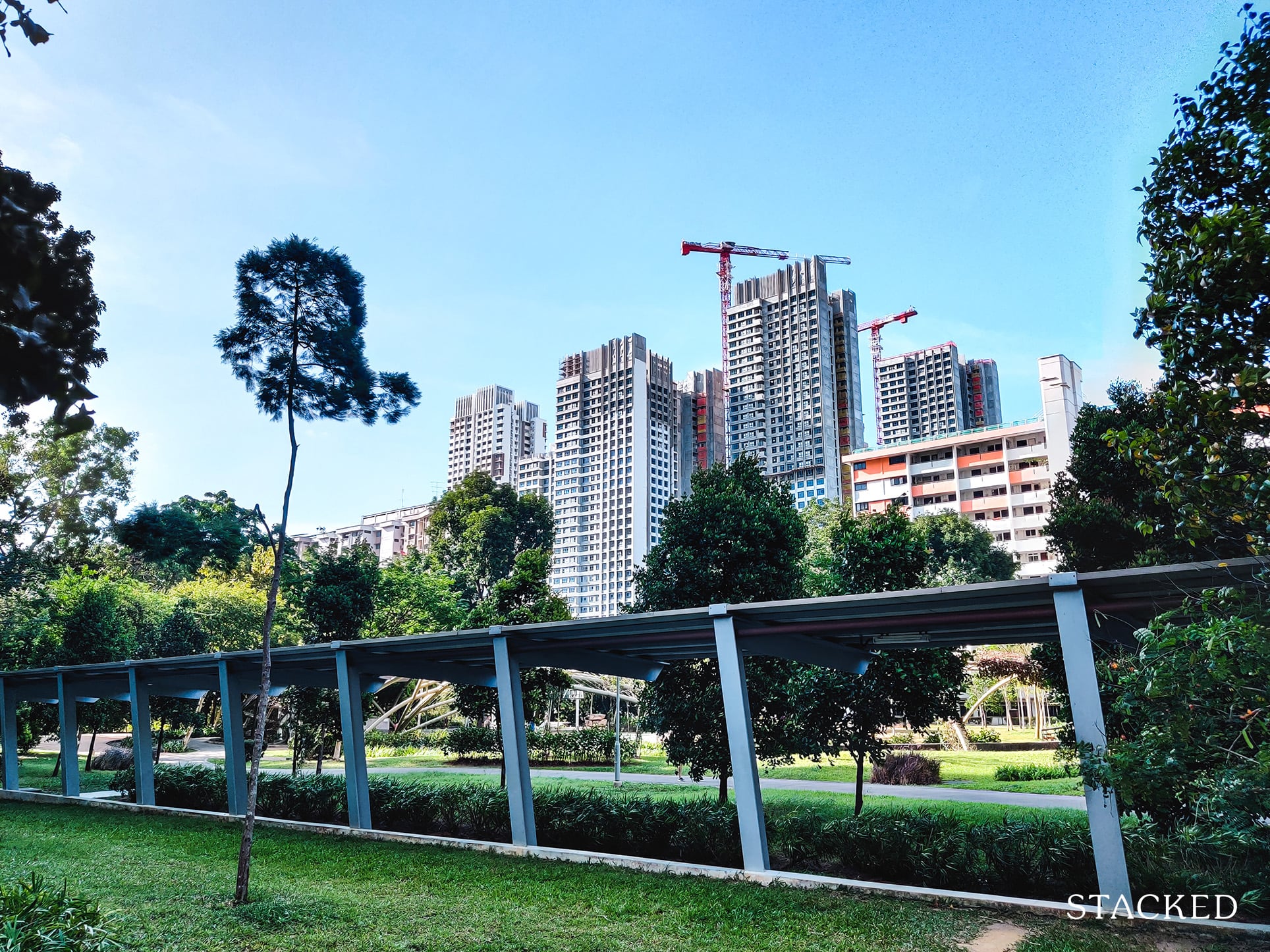
For example, if your first condo is a small one or two-bedder, then you may need to sell it and get a larger resale flat when it comes time to start your family. The problem is that you need to wait 30 months to ballot for a BTO flat, after selling private property.
Realistically speaking, this will restrict most such downgraders to the HDB resale market; and not all home buyers are happy with flats that are pricier yet have shorter leases.
This is why we suggest that, if your first home is going to be private, try to make sure it’s large enough if you should decide to get married, have children, etc. in a few years down the road.
For more direct advice for your situation, talk to us on Stacked, so we can put you in touch with the relevant experts. In the meantime, you can visit Stacked for in-depth reviews of new and resale condos alike, to better help your decision.
At Stacked, we like to look beyond the headlines and surface-level numbers, and focus on how things play out in the real world.
If you’d like to discuss how this applies to your own circumstances, you can reach out for a one-to-one consultation here.
And if you simply have a question or want to share a thought, feel free to write to us at stories@stackedhomes.com — we read every message.
Ryan J. Ong
A seasoned content strategist with over 17 years in the real estate and financial journalism sectors, Ryan has built a reputation for transforming complex industry jargon into accessible knowledge. With a track record of writing and editing for leading financial platforms and publications, Ryan's expertise has been recognised across various media outlets. His role as a former content editor for 99.co and a co-host for CNA 938's Open House programme underscores his commitment to providing valuable insights into the property market.Need help with a property decision?
Speak to our team →Read next from Property Advice

Property Advice We Sold Our EC And Have $2.6M For Our Next Home: Should We Buy A New Condo Or Resale?

Property Advice We Can Buy Two HDBs Today — Is Waiting For An EC A Mistake?

Property Advice I’m 55, Have No Income, And Own A Fully Paid HDB Flat—Can I Still Buy Another One Before Selling?

Property Advice We’re Upgrading From A 5-Room HDB On A Single Income At 43 — Which Condo Is Safer?
Latest Posts

Singapore Property News REDAS-NUS Talent Programme Unveiled to Attract More to Join Real Estate Industry

Singapore Property News Three Very Different Singapore Properties Just Hit The Market — And One Is A $1B En Bloc

On The Market Here Are Hard-To-Find 3-Bedroom Condos Under $1.5M With Unblocked Landed Estate Views



































3 Comments
My HDB monthly conservancy was $99.50 and the monthly parking $110, has no swimming pool but a drain nearby which flood during heavy rain.
Monthly parking should be $1 for open air carparks. Every week have to clean bird crap off my car kenasai lah.